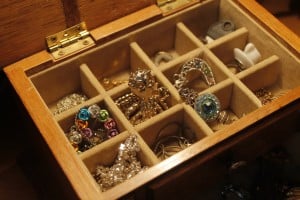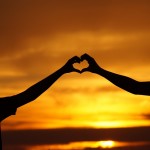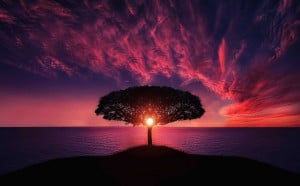 The clash of cultures can take an interesting turn in the areas of worship and often people can get stuck in the roles that are projected onto them. I don’t think that I am any different and have continued to break that mold throughout my life.
The clash of cultures can take an interesting turn in the areas of worship and often people can get stuck in the roles that are projected onto them. I don’t think that I am any different and have continued to break that mold throughout my life.
Being Wiccan comes with its own culture, expectations and “norms”, just like being Black. It is a fusion that is an intricate dance on the line of heritage and spirituality; one in the same and sometimes feels distinctly different. Some of the comments I have gotten regarding writing about these parts of myself were about how my practice is different than others. I don’t know that it is different and I am not often an advocate of comparing ones spirituality against anothers but I do think there is some merit in looking at the differences in my practice and how it applies to the fusion of being Bl-iccan.
I was convinced that Cerridwen was my matron. Mother to mother, protector to protector, passing of wisdom to the children, all things we had in common and she felt so familiar to me. Upon coming towards the end of my third degree studies I had several rude awakenings about this mysterious feminine energy that I did not know yet but had the distinct feeling that she knew me. She was the great mother, the ocean and the moon personified, comforting yet fierce was her energy. I knew her in a distant way that I wasn’t sure how to relate to and yet she was not Cerridwen, she was Yemaya.
I did not work with the African Pantheon at all at this point and had no real desire to; I thought I was perfectly fine with my Celtic Gods, thank you very much. But Yemaya had a whole different plan for me, one I had to make room for.
Research didn’t seem to fill the void that I needed when searching for the tales of Yemaya. Every Wiccan book had some combination of Celtic, Greek/Roman or Norse deities in them. Every once in a while I might find some Egyptian information in a Wiccan book but very rarley would I find Yemaya; and if I did it was some generalized generic information that didn’t include the myths of her power. Frustrated and unsure, I knew I had to learn her from the inside of myself. This is where a lot of my fusion intensified.
Inside of the African Diaspora religions there are many layers of information that are not freely shared with those who are outside of the tradition of practice. I found that there were not always people jumping up to share with the Wiccan stories about the African deity.
I cannot say that all African American Wiccans practice a certain way, that would be impossible to compare. I do know that I started the process of becoming a priestess with an idea of what that might have meant, and today I know a lot of things differently.
I work in circle with various other deities, regardless of being a child of Yemaya. What I have found the most interesting of all is how she inhabits my body and soul, even when I am not calling for her in the circle. She swells inside of me and fills my spirit with her presence as if she is taking her place within her priestess and making it clear that I have already been called. She is with me in ritual and in my daily walk through life. I had never felt that consistency with a deity but I know that the Bl-iccan merge inside of me is something unique and yet common at the same time, for those who give themselves to spirit.











